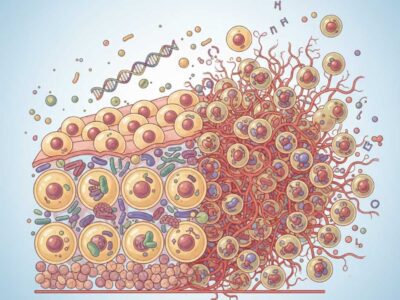Unexplained infertility occurs when a doctor isn’t able to identify an obvious reason behind a condition. Infertility is often a result of both male and female factors, such as low sperm count, poor egg quality, or reproductive health issues. Conditions like endometriosis may also cause infertility, repeated miscarriages, or IVF failure. Here are some reasons why early intervention is significant in treating unexplained infertility:
Comprehensive Evaluation
A woman may be experiencing infertility if she is unable to get pregnant after several months of unprotected sex without contraceptives. Doctors conduct bloodwork and other tests to assess ovarian reserves, menstrual cycles, and overall reproductive health. They can also test for specific conditions like polycystic ovarian syndrome (PCOS) and sexually transmitted infections (STIs). If no apparent cause is linked to the infertility, a doctor typically recommends additional tests to discover the issue.
Specialized tests help identify leading causes of unexplained infertility and IVF failure, such as endometriosis, endometritis, and progesterone resistance. Some tests include a BCL6 marker that identifies inflammation of the uterine lining, a common symptom of endometriosis. Endometriosis causes uterine tissue to grow outside of the uterus, including in the pelvic cavity, fallopian tubes, or around the ovaries. This may block the pathway of sperm and egg, preventing fertilization.
Although some women with endometriosis have obvious symptoms, such as pelvic pain and irregular menstrual cycles, others are asymptomatic. Silent endometriosis may remain undetected for several years, especially when cycles appear regular. Early infertility intervention allows patients to determine potential causes and receive treatment before symptoms worsen or further impact reproduction.
Timely Treatment
Unexplained infertility has no obvious cause, but could point to specific issues, such as endometriosis or progesterone resistance. If conventional blood work and scans don’t reveal an issue, doctors can use BCL6 and CD138 tests. A positive BCL6 test could mean potential endometriosis, while a CD138 test reveals progesterone resistance. If the problem is endometriosis, a fertility doctor may recommend a laparoscopic test to look for abnormal endometrial tissues.
Removing the tissues might clear the pathway for sperm and egg, resulting in natural conception. If progesterone resistance is the issue, the doctor may prescribe synthetic progesterone and other pregnancy-supporting hormones to help manage the condition. Issues like pelvic pain and PCOS may be addressed through birth control pills and androgen inhibitors. Fertility doctors also treat STIs using antibiotics, antifungals, and antivirals if needed.
If no apparent issues are determined, fertility doctors might recommend lifestyle changes, such as adjusting the intercourse schedule to align with ovulation cycles, or even things like diet. Other approaches include assisted reproductive treatments like IVF, donor sperm and egg, or surrogacy. Timely treatment of reproductive health issues improves fertility and reduces the need for invasive surgeries like laparoscopy. It could also reduce pain, inflammation, menstrual irregularities, and other symptoms.
Improved Outcomes
The ovarian reserve and egg quality decline with age, and natural conception becomes less likely as women approach menopause. Early intervention in unexplained infertility allows couples to pursue treatment while the biological window is still favorable. Comprehensive assessments may help reveal other reproductive health issues, such as weight or age-related decline. Mitigating these issues through medication, nutrition, and healthy lifestyle habits increases the chances of conception.
Doctors also address conditions like mild endometriosis and egg-sperm interaction problems. They can prescribe medications to regulate menstrual cycles, improve ovulation, or enhance the quality of eggs. If the issue comes from male-related factors, treatment can focus on increasing sperm count and motility.
Pursuing fertility medications or assisted reproductive technologies early increases the chances of success. Some people can conceive naturally after resolving issues like silent endometriosis. Others require donor sperm and egg or surrogates. Fertility doctors also offer ongoing monitoring using routine scans, blood work, and new tests like BCL6. This approach allows early diagnosis and treatment of potential issues that may lead to infertility.
Minimize the Chances of IVF Failure
Infertility is a treatable condition, but doctors must first identify the underlying cause. If the infertility has no explanation, a BCL-6 test may help check for markers of endometriosis before seeking treatments like IVF. Early intervention increases the chances of success and addresses issues before they cause irreparable damage. Get tested today to minimize the chances of IVF failure.

















